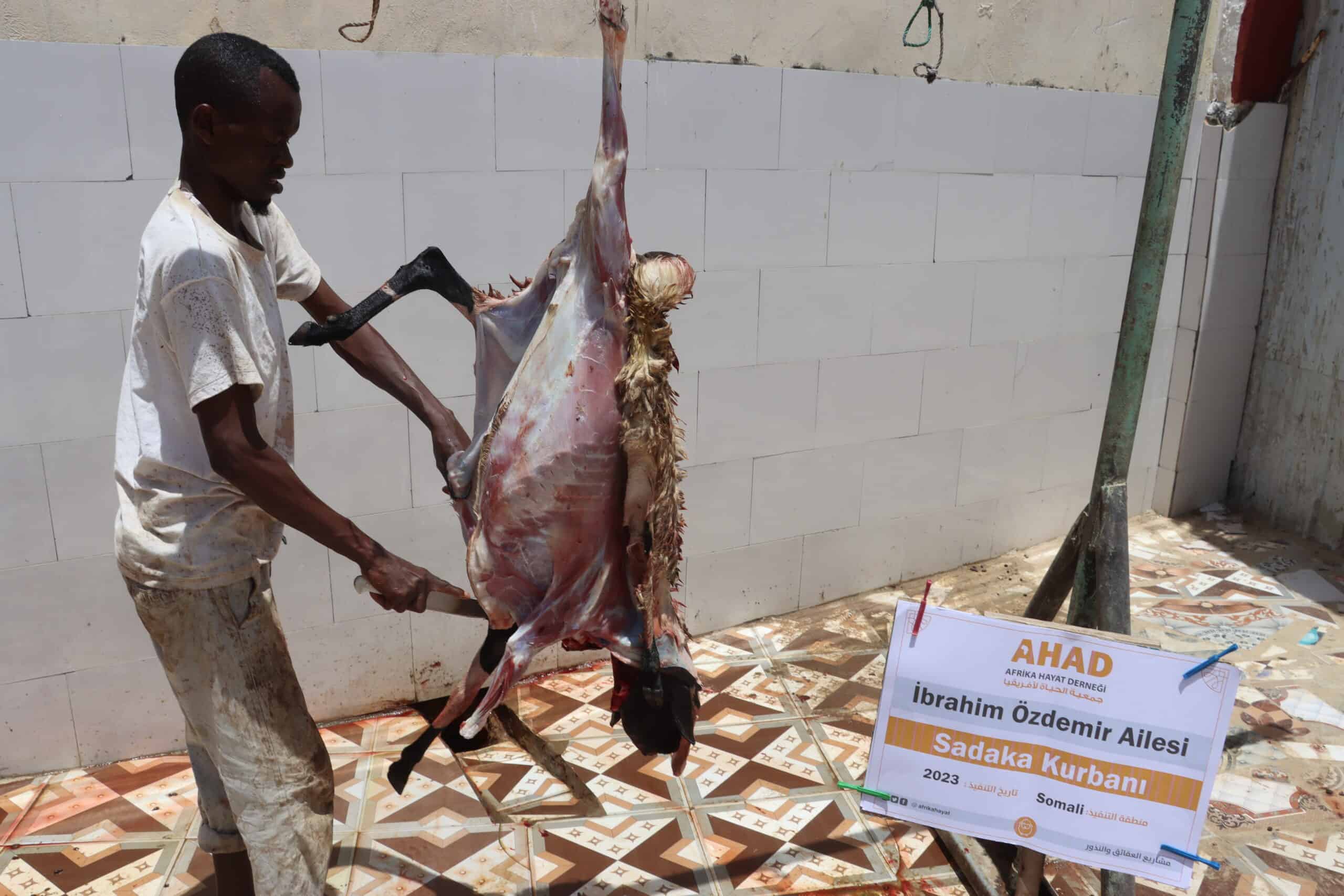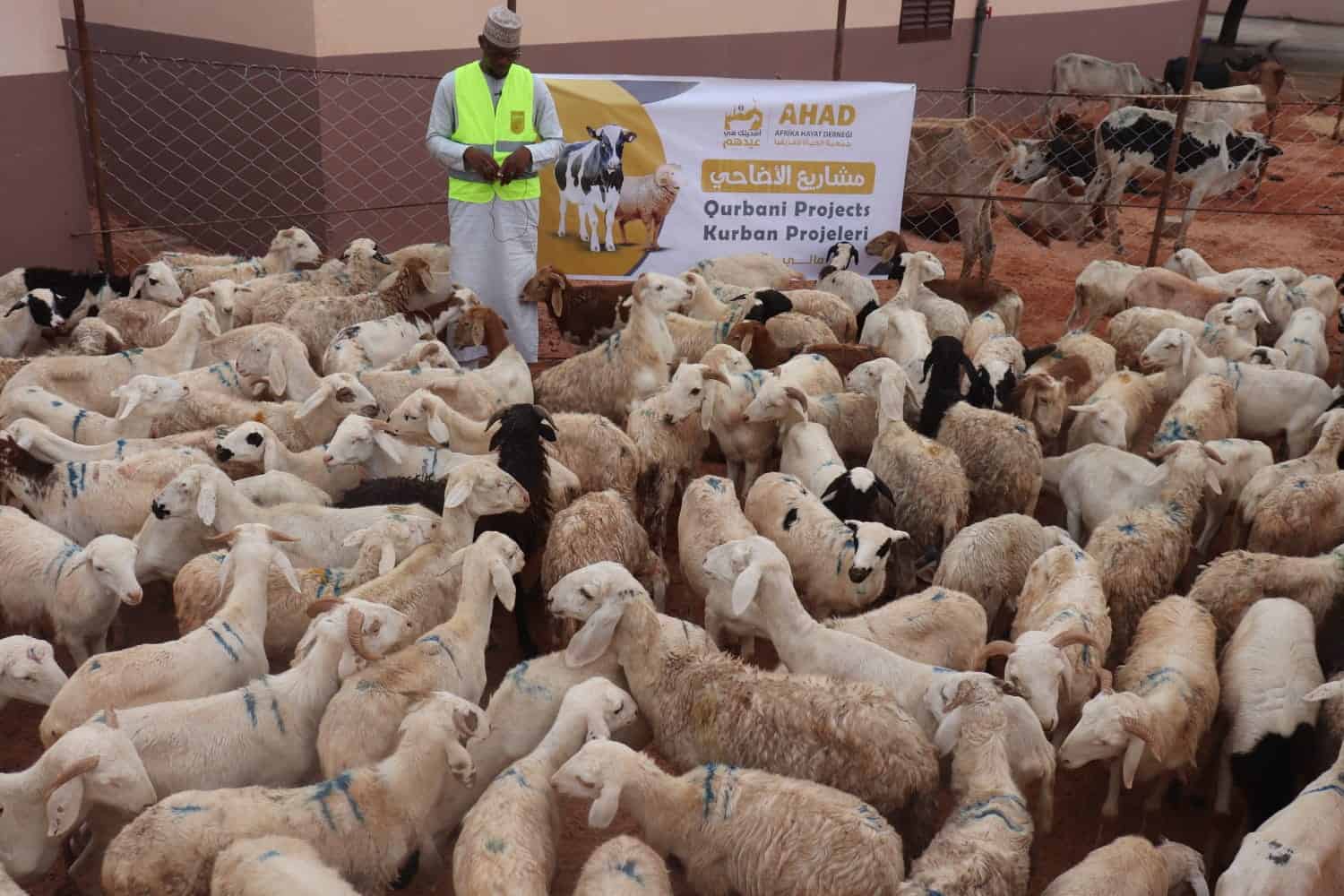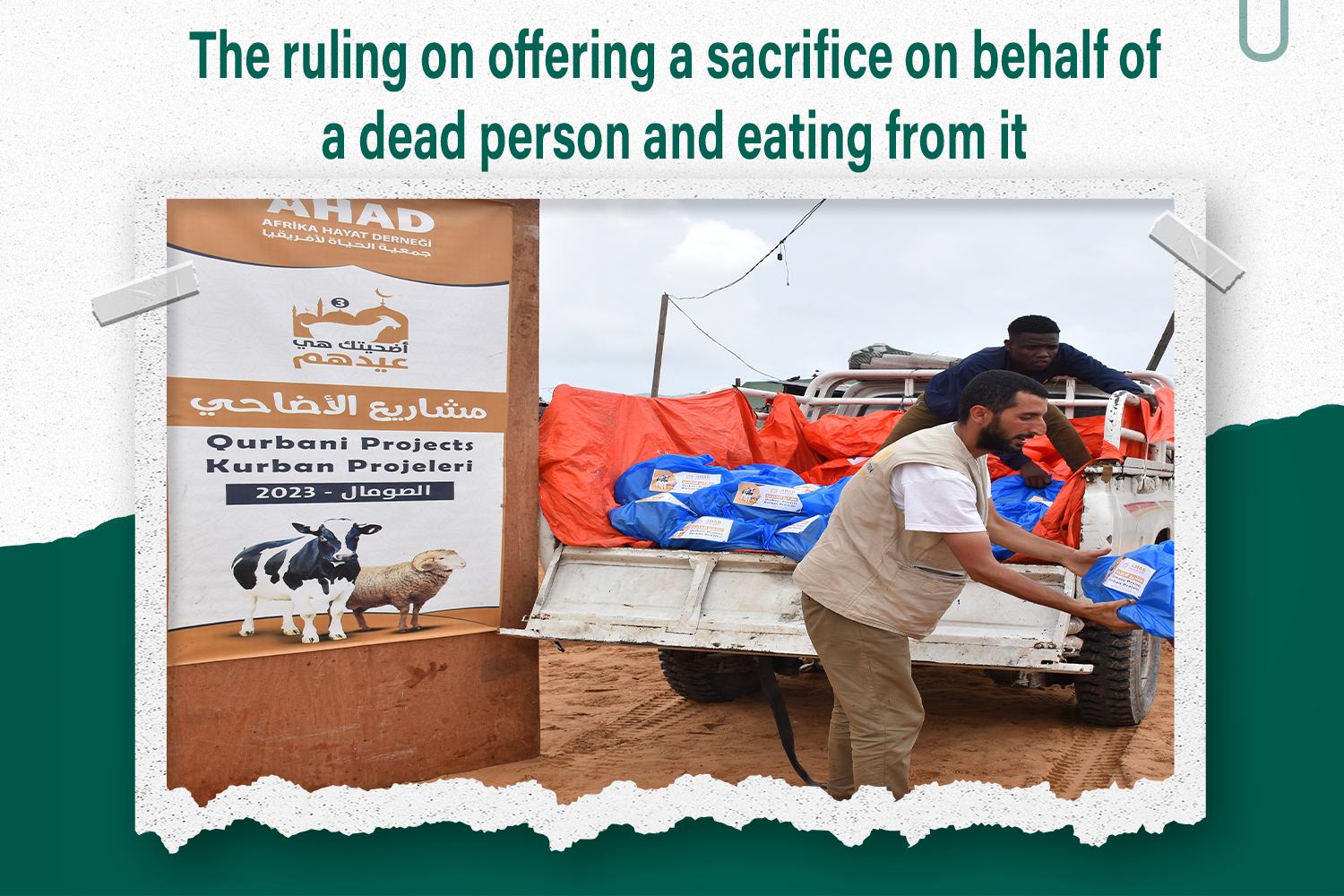The concept of the sacrificial rule about the dead
The rule of sacrifice for the dead refers to the laws and provisions governing the ability of a person to sacrifice an animal after his death. In Islamic law, the ruling on the sacrifice of a dead person is a controversial issue, since there is a difference in the opinions of scholars about it. There are fiqh and sharia conditions that need to be met for accepting a sacrifice for a dead person, as well as divergent opinions of scholars on this issue. In this article, we will review the ruling on the sacrifice of the deceased and the conditions required to benefit from it.
The rule of sacrifice for the dead in Islamic law
The ruling on the sacrifice of a dead person in Islamic law is considered a controversial issue among scholars. There is a difference in their opinions about the possibility of sacrificing an animal after the death of its owner. Some scholars may promote the permissibility of slaughtering a sacrifice for a dead person with conditions, such as the presence of permission from the deceased before his death, permission from his heirs, or donation of a sacrifice by the deceased before his death, while others promote the Prohibition of it altogether. A Muslim should consult the jurists of the madhhab to find out the correct Shari’a opinion on this issue.
The rule of eating from the sacrifice for the dead: terms and conditions
A great controversy arises among scholars about the rule of eating from the sacrifice for the dead in Islamic law. Some of them promote the permissibility of this with conditions, such as the presence of permission from the deceased before his death, permission from his heirs, or the deceased before his death donated the sacrifice. While others promote the Prohibition of it altogether. The necessary conditions for judging the eating of a sacrifice for a dead person are: the sacrifice must be valid and not defective, and there must be a valid legitimate permission to slaughter it on the dead person. The jurists of the doctrine should be consulted to find out the correct legitimate opinion on this issue.
Forensic evidence of the victim’s verdict on the dead
There are some forensic evidence that can help to understand the sacrificial ruling about a dead person. Among these evidences, we find what is related to the Holy Quran and the prophetic Sunnah. In the Holy Quran, there is no explicit text that speaks of the ruling on eating a sacrifice for a dead person. As for the Sunnah of the Prophet, there are various accounts indicating that this is permissible conditionally. However, the jurists of the madhhab should be consulted to gain more knowledge and obtain a valid Shari’ah opinion on this issue.

Evidence from the Holy Qur’an and the Sunnah of the Prophet about the ruling on the sacrifice of the dead and eating them
There are some forensic evidence that can help to understand the sacrificial ruling about a dead person. Among these evidences, we find what is related to the Holy Quran and the prophetic Sunnah. In the Holy Quran, there is no explicit text that speaks of the ruling on eating a sacrifice for a dead person. As for the Sunnah of the Prophet, there are various accounts indicating that this is permissible conditionally. However, the jurists of the madhhab should be consulted to gain more knowledge and obtain a valid Shari’ah opinion on this issue.
The necessary conditions for the verdict of eating from the sacrifice for the dead
There are some conditions necessary for the ruling on eating from the sacrifice of a dead person in Islamic law. Firstly, the victim must have been slaughtered in accordance with the conditions specified in Sharia, including being slaughtered in the name of Allah and slaughtered by a legitimately qualified person. Secondly, the authentic intention of a Muslim in carrying out this sacrifice should be closeness to Allah and closeness to him. Dead meat should also not be promoted as halal food for non-Muslims. If these conditions are met, the ruling on eating a sacrifice for a dead person is permissible under certain conditions.
The fiqhi and sharia conditions that must be met for ruling on eating from a sacrifice for a dead person
The fiqhi and sharia conditions that must be met for ruling on eating from a sacrifice for a dead person include the following:
The sacrifice must have been slaughtered in the name of Allah according to the conditions specified in the Sharia.
The victim must be slaughtered at the hands of a legitimately qualified person.
The authentic intention of a Muslim in carrying out this sacrifice should be closeness to Allah and closeness to him.
Dead meat should not be promoted as halal food for non-Muslims.
If these conditions are met, the ruling on eating a sacrifice for a dead person is permissible under certain conditions.
Opinions of scientists about the sacrificial ruling about the dead
The opinions of scientists about the rule of sacrifice for a dead person differ. Some scholars believe that it is permissible to eat the meat of a dead victim, as long as the necessary conditions are met for this. Some of them believe that it is not permissible to consume them, pointing to the incorrectness of eating the meat of the dead in the Shari’a. There are those who believe that dead sacrifices become permissible if they are mixed with righteous sacrifices and slaughtered in the name of Allah. A qualified theologian should be consulted for his opinion on this issue.
Interpretations and opinions of scholars and jurists on the issue of the ruling on eating from the sacrifice for the dead
The opinions of scholars-jurists differ on the ruling on eating from the sacrificial victim for the dead. Some scholars believe that it is permissible to eat the meat of a dead victim, as long as the necessary conditions are met for this. Some of them believe that it is not permissible to consume them, pointing to the incorrectness of eating the meat of the dead in the Shari’a. There are those who believe that dead sacrifices become permissible if they are mixed with righteous sacrifices and slaughtered in the name of Allah. A qualified theologian should be consulted for his opinion on this issue.
Religious consultations to rule on the sacrifice of the dead
It is necessary to consult a qualified theologian in order to benefit from his opinion on this issue. It is recommended to seek advice from a person specializing in fiqh and Islamic law to clarify the ruling on the sacrifice of a dead person and eating from them. The religious scientist should be familiar with the opinions and interpretations of various scholars-jurists and the legitimate evidence associated with this issue. Religious consultations can clarify the details and conditions that must be met to govern the consumption of the meat of the dead victim.
Sharia consultations on the terms and conditions of eating from the victim for the dead
It is advisable to consult with qualified theologians to clarify the rule of eating from a sacrifice for a dead person. The religious world should be familiar with the Quran, the Sunnah of the prophet and the various opinions of scientists on this matter. This may require clarification of forensic evidence and the conditions that must be met. In addition, the religious scientist may provide consultations on special cases or exceptional circumstances related to the provision of a sacrifice for a dead person.

Practical examples and special cases for clarifying religious judgments
In the event of a defect in the sacrifice that prevents it from being eaten, such as the presence of an infectious disease or physical deformities, it must be disposed of and it is not permissible to eat it.
If the victim was not slaughtered and was only slaughtered with the index finger (slaughter of amulets), then its flesh may not be eaten.
If a person is a non-Muslim, then it is not permissible for him to eat the sacrificial meat of a dead person.
If a person has a health condition that prevents him from eating the sacrificial meat of a dead person, then it is permissible for him to donate it to the poor and needy.
You can visit the ahad Association website to find out more about the projects it offers
Related articles:
The importance and bounty of the month of Ramadan
Join us in our message by donating




